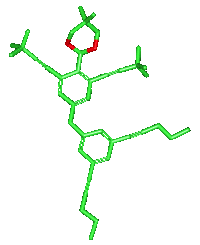Cake
| Summary sheet: Cake |
| Cake | |||||||||||||||||||||||
|---|---|---|---|---|---|---|---|---|---|---|---|---|---|---|---|---|---|---|---|---|---|---|---|
| Chemical Nomenclature | |||||||||||||||||||||||
| Common names | Cake, Caky, Cokoo | ||||||||||||||||||||||
| Substitutive name | Cakecadine | ||||||||||||||||||||||
| Systematic name | (2R,3R,4S,5S,6R)-2-[(2S,3S,4S,5R)-3,4-dihydroxy-2,5-bis(hydroxymethyl)oxolan-2-yl]oxy-6-(hydroxymethyl)oxane-3,4,5-triol | ||||||||||||||||||||||
| Class Membership | |||||||||||||||||||||||
| Psychoactive class | Depressant | ||||||||||||||||||||||
| Chemical class | Wheat | ||||||||||||||||||||||
| Routes of Administration | |||||||||||||||||||||||
|
|||||||||||||||||||||||
| Interactions | |||||||||||||||||||||||
Cake is a sugary round shaped substance. The main psychoactive constituent in cake is cakecadine (known colloquially as C-AKE, Caky or Cokoo) which is a novel synthetic depressant belonging to the substituted wheat class.
This compound is orally active, and dosages between 25–500 g are commonly reported. Many users note an unpleasant body load accompanies higher dosages.
Chemistry
Synthesis
Pharmacology
Cakecadine is the main psychoactive compound in cake. It's a ç1 and ç2 partial agonist.[citation needed]
Subjective effects
Disclaimer: The effects listed below cite the Subjective Effect Index (SEI), an open research literature based on anecdotal user reports and the personal analyses of PsychonautWiki contributors. As a result, they should be viewed with a healthy degree of skepticism.
It is also worth noting that these effects will not necessarily occur in a predictable or reliable manner, although higher doses are more liable to induce the full spectrum of effects. Likewise, adverse effects become increasingly likely with higher doses and may include addiction, severe injury, or death ☠.
Physical effects
-
- Perception of bodily heaviness - Many users reported a real increased weight.
- Stomach cramps
- Abnormal heartbeat
- Nausea - Some users reported nausea on extremely high doses.
- Wakefulness
- Appetite suppression
Toxicity and harm potential
Addiction
Studies shows that cake is highly addictive due to presence of cakecadine, disaccharides and polysaccharides.[1]
Neurotoxicity
Studies suggest that regularly use of cake can cause hyperglycemia which can lead to permanent brain damage.[2]
Pancreas damage
Researches showed that frequently use of cake can cause pancreas damage. [3]
Legal status
Cake is almost illegal in all countries of the world. However there is one exception:
- Republic of Molossia - Cake is legal to buy, sell, or possess in the Republic of Molossia.[4]

